Remember field trips? The long, stuffy bus rides; the brown bag lunch that turned into a gooey sauna when it was finally time to eat; the museum curator who dragged on while you and your friends goofed off in the back of the crowd.
Well, this field trip ain’t nothing like that.
Back in October of last year, a handful of inner-city Bay Area kids got the excursion of a lifetime when they traveled 200 miles south on the I-5 for a day at Surf Ranch. The outing was organized by MeWater – a nonprofit based in San Francisco with a simple mission: to take at-risk kids out of their Bay Area neighborhoods and into the great outdoors (and, ideally, the ocean).
Of course, in the era of COVID-19, MeWater founders Eddie Donnellan and Tim Gras have been forced to pivot – which they have, to food and supplies distribution to communities in need. But Eddie and Tim, along with the kids, are still reeling from their day at the Ranch. And Dom Padua (brother of Maverick’s charger, Luca) put together a video to showcase the experience. Check it out below, followed by a chat with Eddie and Tim.
For those who don’t know, explain what the MeWater Foundation is and what you guys do.
Tim Gras: We’re a group of Bay Area surfers and local mental health professionals, and we provide surfing groups and outdoor activities for inner-city youth and families.
Eddie Donnellan: Also, historically, we’ve provided overnight camps. And we provide community support for the families and kids who we serve – just doing what we can to get their needs met. The ocean is really our main conduit for that.
- Gearing up to get down pre-COVID. Photo: Jeff Johnson
- Mealtiime with MeWater and Project Avary. Photo: Jessica Stout Paul
Who were some of the kids you brought along to the Surf Ranch?
Eddie: Tim and I both worked at a residential mental health facility – so, emotionally disturbed kids and kids who have been removed from their homes. That’s where MeWater sort of started. It evolved into us creating a formal nonprofit to get these kids out surfing. There’s this massive need here in the Bay Area. The kids we took are all connected through MeWater and the facility. We could only take a certain amount of kids. Two of them had never been surfing. One of them has been with us since day one. We tried to build a group that epitomizes what we do and why we do it.
Tim: It was kind of a last-minute thing. With two of the kids, we had a really long-standing relationship. Then we were able to get two kids from our community work. We did it on the fly, but we were able to get them out there to have this amazing day. It was a neat combination, which sort of represented all the work we do.
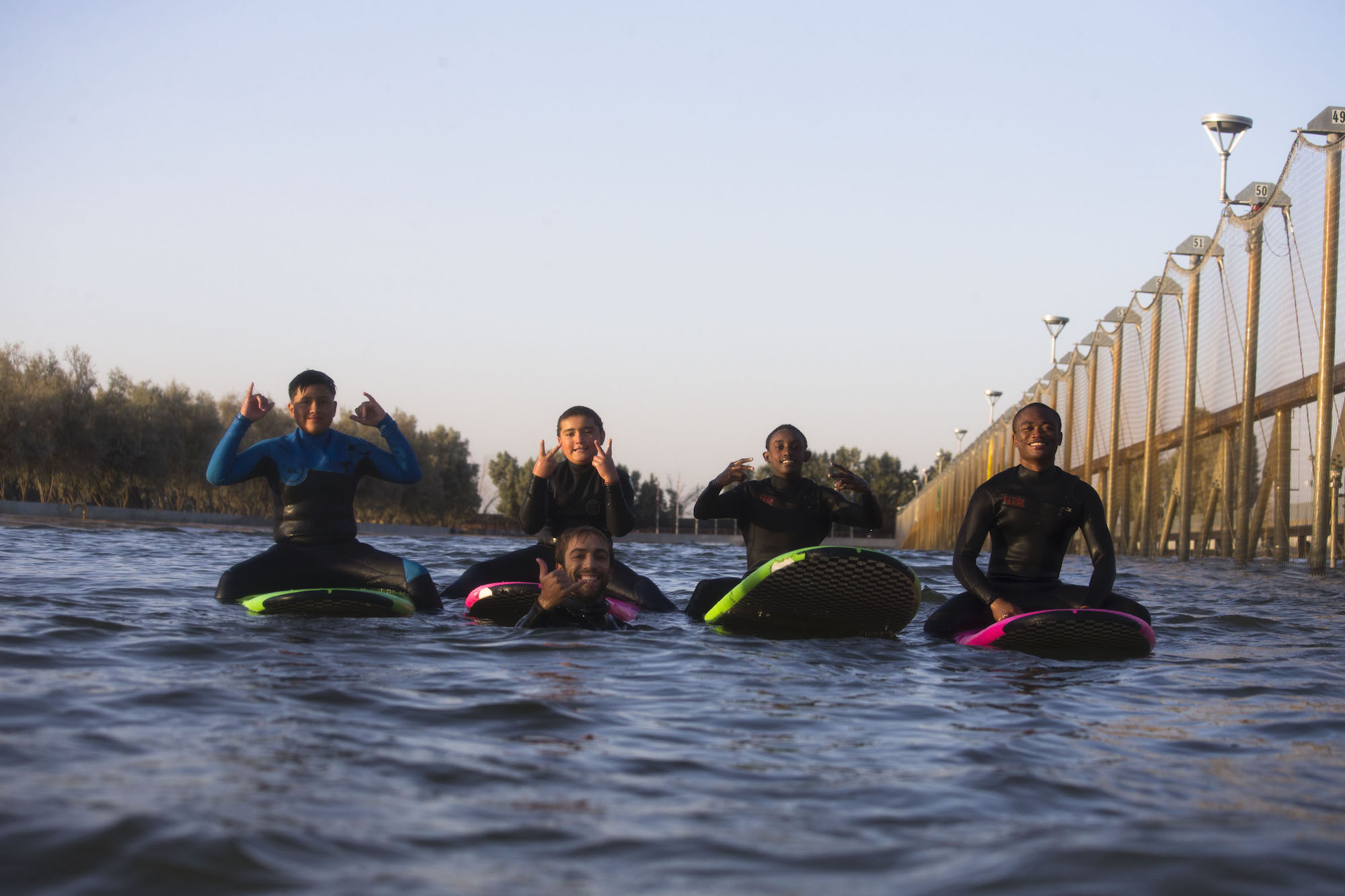
Making memories with the crew.
The older kid in the clip seemed to have a history with you guys. What’s his story?
Tim: We’ve been working with him for 10 or 15 years. He was eight when we met, and he’s 20-something now.
Eddie: He went through the system and we stayed connected with him. In a perfect world, that’s the ideal way to stay connected with these kids. We’ve taken him surfing over the years, and we’ve stayed in touch. He held onto a lot of the values that we taught him – which he really nailed in that interview.
Tim: In short, he was a big impetus on us starting MeWater. He was an amazing athlete, and he had a really challenging family situation, but he had so much potential. We would meet a lot of kids like this. And to watch him turn into an amazing young person…it’s just really cool to stay connected with him.
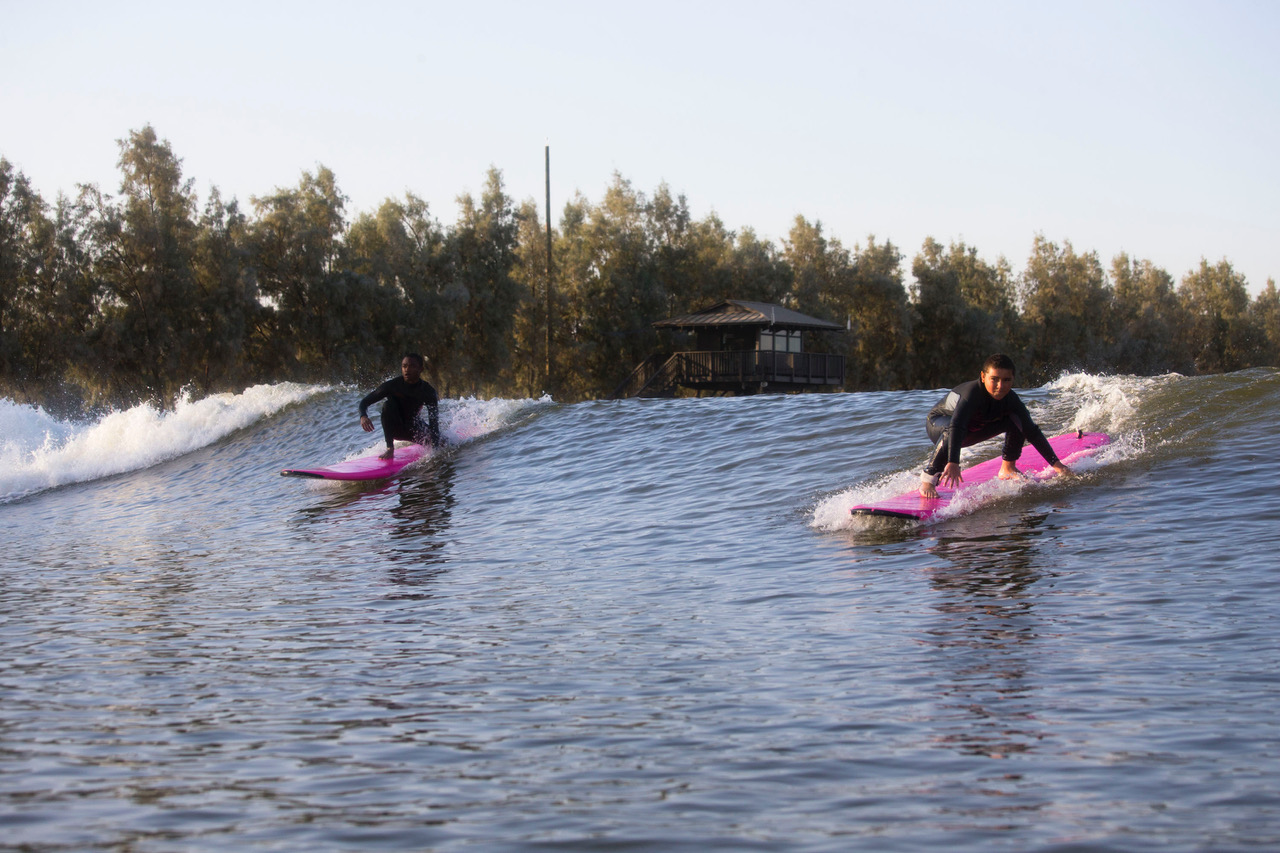
Imagine catching your first wave ever at the Surf Ranch. Yeah, pretty special.
What were their reactions when you guys pulled up to the Surf Ranch?
Tim: When those gates opened, and to watch those kids light up – while knowing the impact of that moment, of this outside reality from inner-city life – for Eddie and I to sit there and see this juxtaposition, it was just crazy. It’s such a contrast from the reality that these kids face daily. It’s hard to describe.
Eddie: They were shocked, and they didn’t really know what they were getting into. Not until they got into wetsuits and the machine started. The first clip that shows them riding the wave, that was the first one that they rode. It was just game on from there. They were so psyched. That day will stick with those kids on a whole other level. It was kind of like a once in a lifetime opportunity for them.
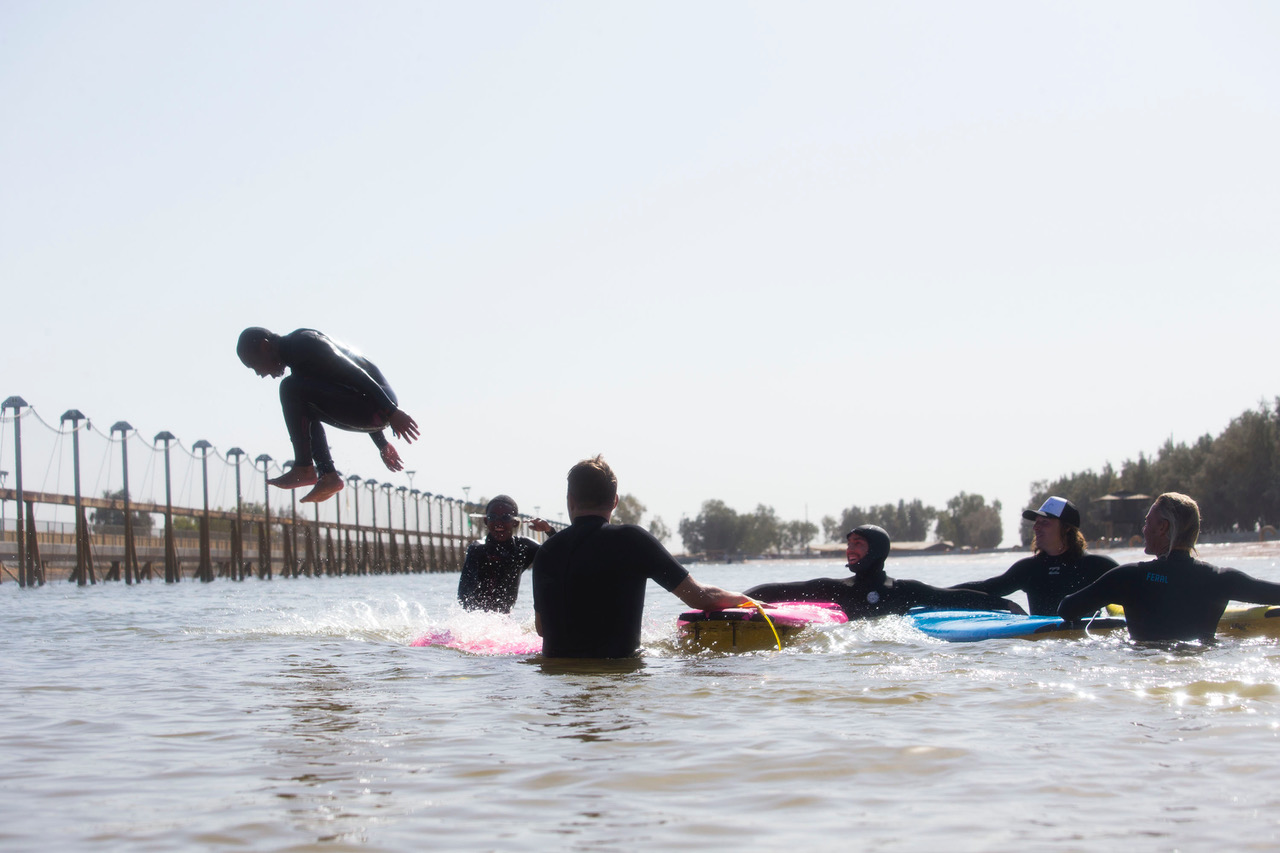
Kids being kids…According to Tim: “The kids got the full experience: surfing, riding the bikes, having the meals, the hot tubs, the fire ring, singing the songs.”
How long were they out there, and did they improve throughout the day?
Tim: Definitely. It was like a 24-hour day for us. We got up at like 4 in the morning, and by the time we dropped all the kids off, it was like 3 in the morning. The kids got the full experience: surfing, riding the bikes, having the meals, the hot tubs, the fire ring, singing the songs.
And so, in the beginning of the day, we started on the inside – just pushing them into the whitewater, the ends of the rides. But then we had our heat, where we had the pool to ourselves. One of the kids who I was helping was like: “Timmy I can’t do it, I don’t wanna do it!” And they’re calling out from the loudspeakers, like, “30 seconds.” And the machine is starting up. He’s this Latin immigrant kid, who’s been surfing maybe once before. I just told him, “you got this.” And the first couple times he was haired, but then he started getting wave after wave.
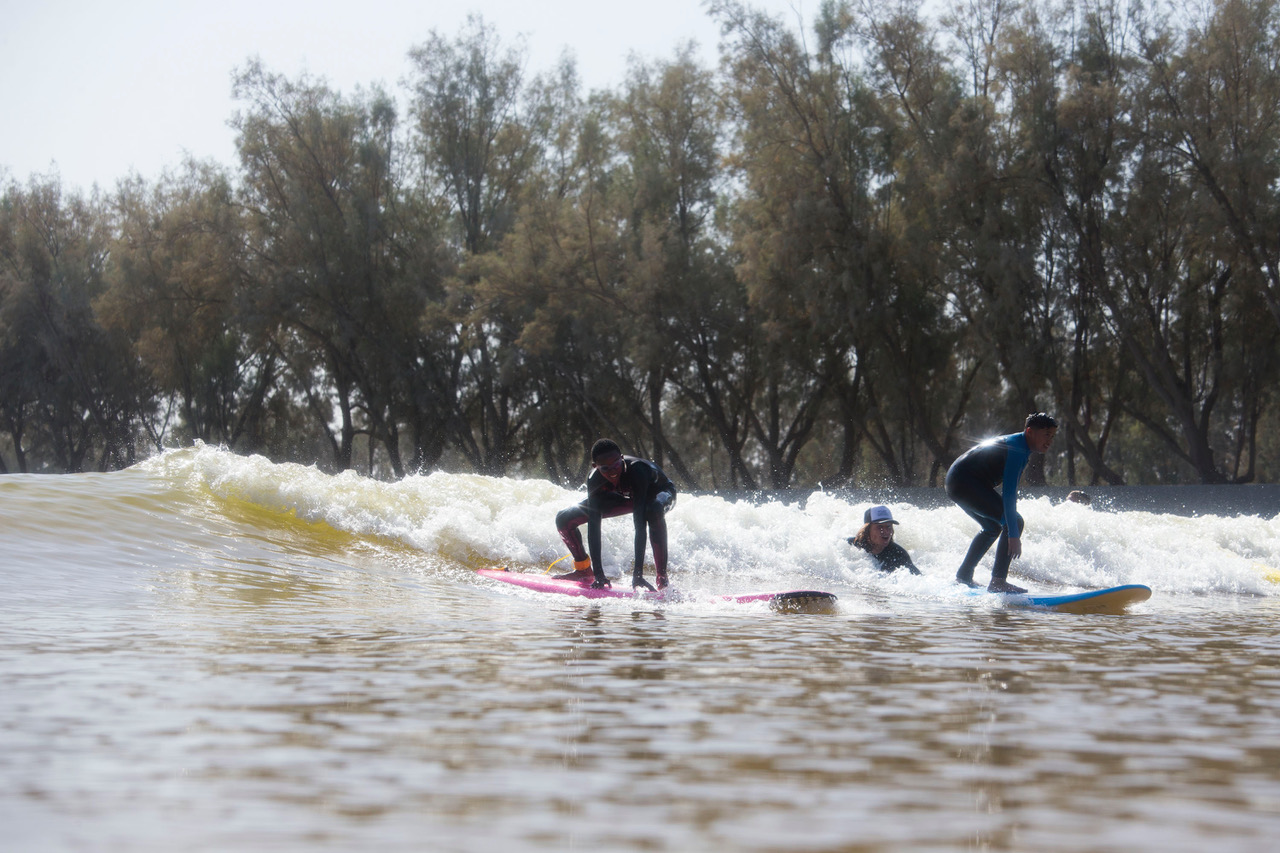
The kids warming up on the inside whitewater, before taking on the big wave.
What do you hope surfing imparts on the lives of these kids?
Eddie: Hope and joy. It starts with a day, but then it builds resilience and trust. It breaks down any sort of color barriers. It’s twofold – we’re trying to give these kids these experiences and to get them engaged in nature and in their community. Then, on the flipside of that, it’s just an opportunity to get them out of their neighborhoods for a day. There’s a lot of trauma that these kids are dealing with and the ocean provides a getaway.
Tim: A big part of our mission is to create these positive new experiences, these trusting relationships, the management of trauma, and overcoming challenges. For them to go out there at the Surf Ranch – which is nerve-wracking, even for the pros – and then to see themselves in this little edit, that’s a huge success for them. We try to create experiences like that with whatever we’re doing – it could be a day at the beach, a nature walk, playing music, whatever.
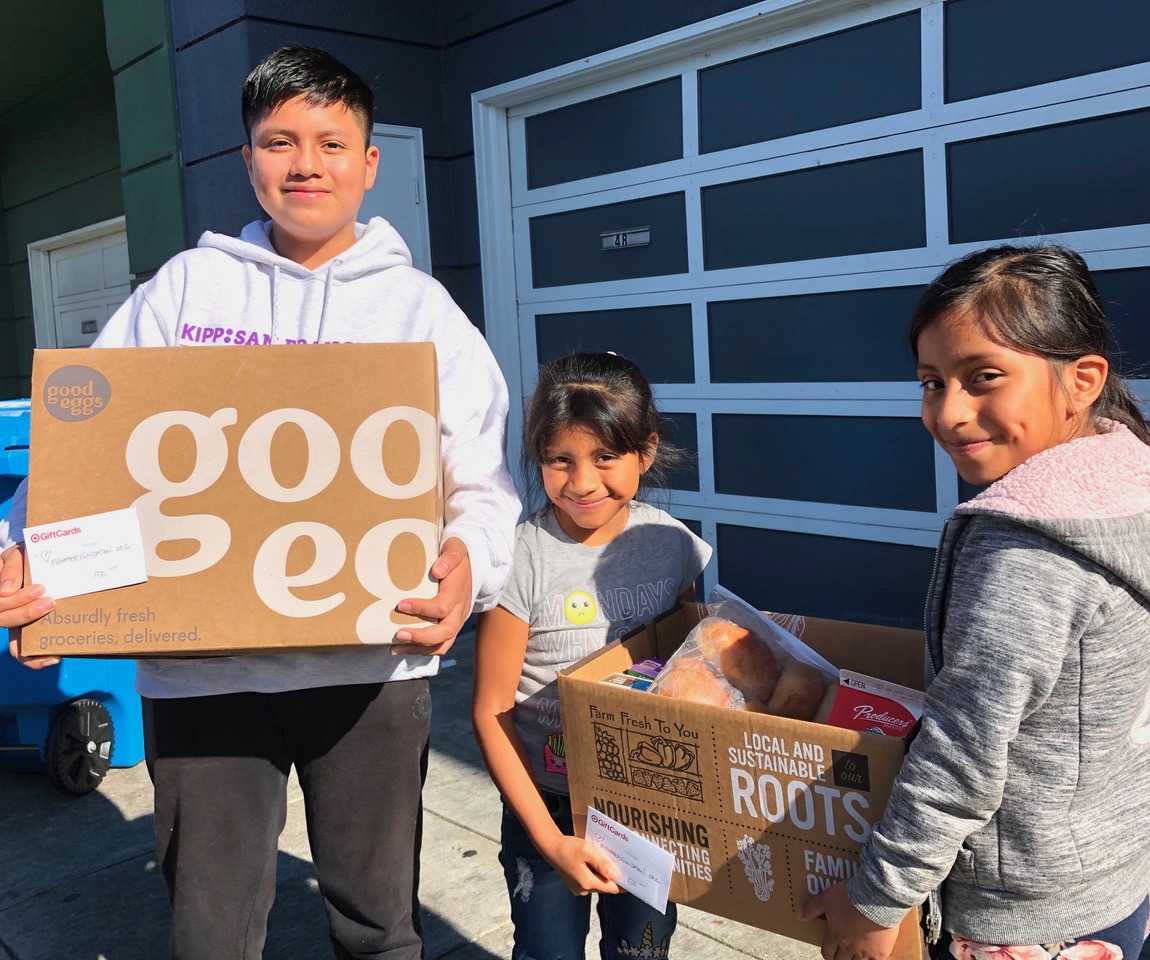
“We’ve raised somewhere between $65,000 to $70,000, specifically for food donations and essential needs. It’s been amazing, and it’s been a way for us to stay connected throughout this time.” To donate, head here.
How has MeWater shifted focus in the time of COVID-19?
Eddie: In late February, we did one camp, and then COVID struck. It was pretty clear that surfing and groups and transportation were going to be a no-go for a while. So, we made the decision to pivot, and to raise money for food and necessities for our families and extended communities. We had to remove surfing from our minds, as far as groups go. We’ve raised somewhere between $65,000 to $70,000, specifically for food donations and essential needs. It’s been amazing, and it’s been a way for us to stay connected throughout this time. We’re gonna continue to do that until we feel safe to operate how we like to – which is, we’re a hands-on program.
Tim: Yeah, so it’s been a massive amount of food and supplies donations. We’ve also partnered with a local restaurant to provide meals. They’ve been going to our MeWater family and the broader communities we serve in San Francisco. We’re going to continue doing the food drives, but we’re really looking forward to getting our kids out of the inner-city neighborhoods and back outside. We can’t wait for that day to come.
Learn more about the MeWater Foundation here.

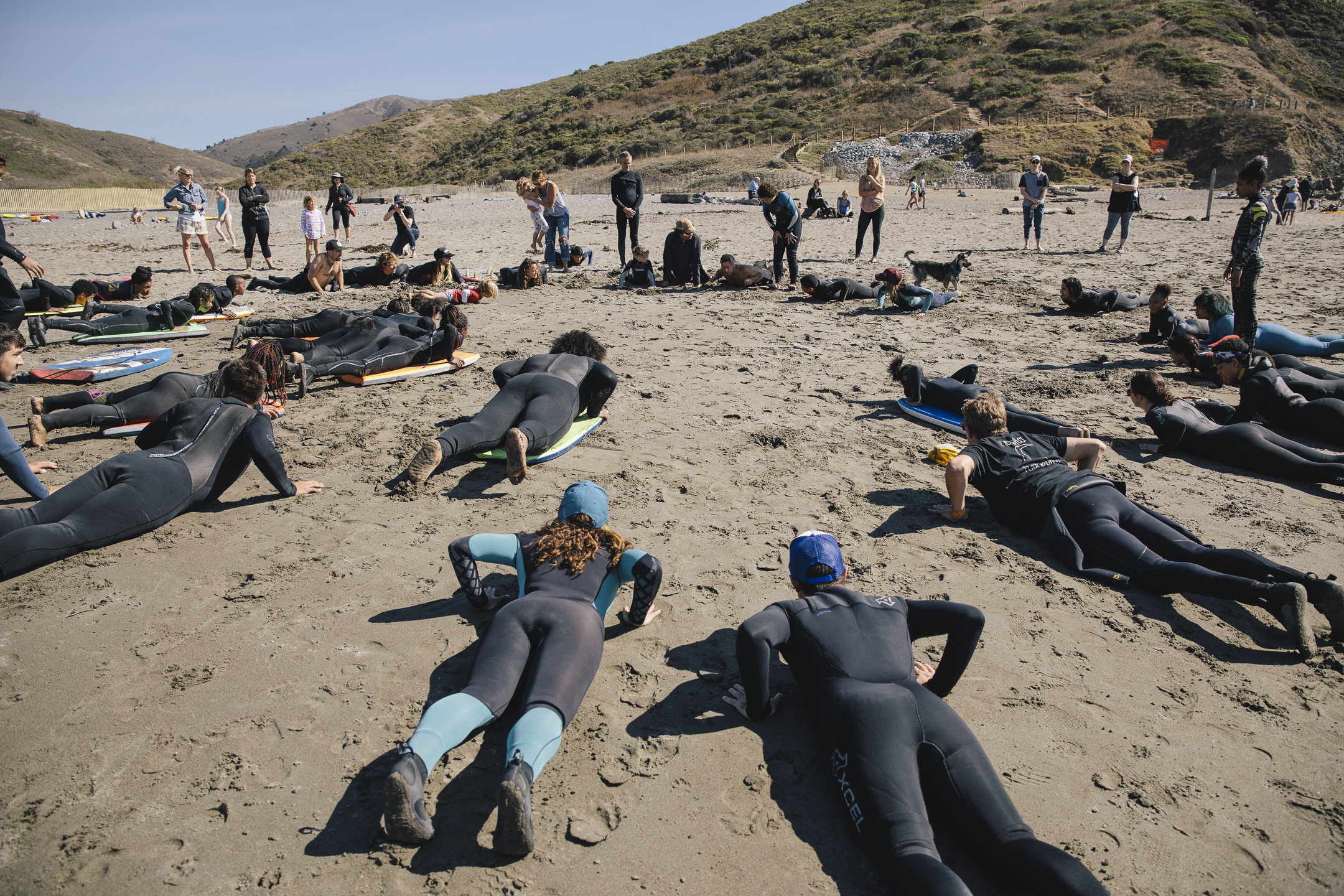
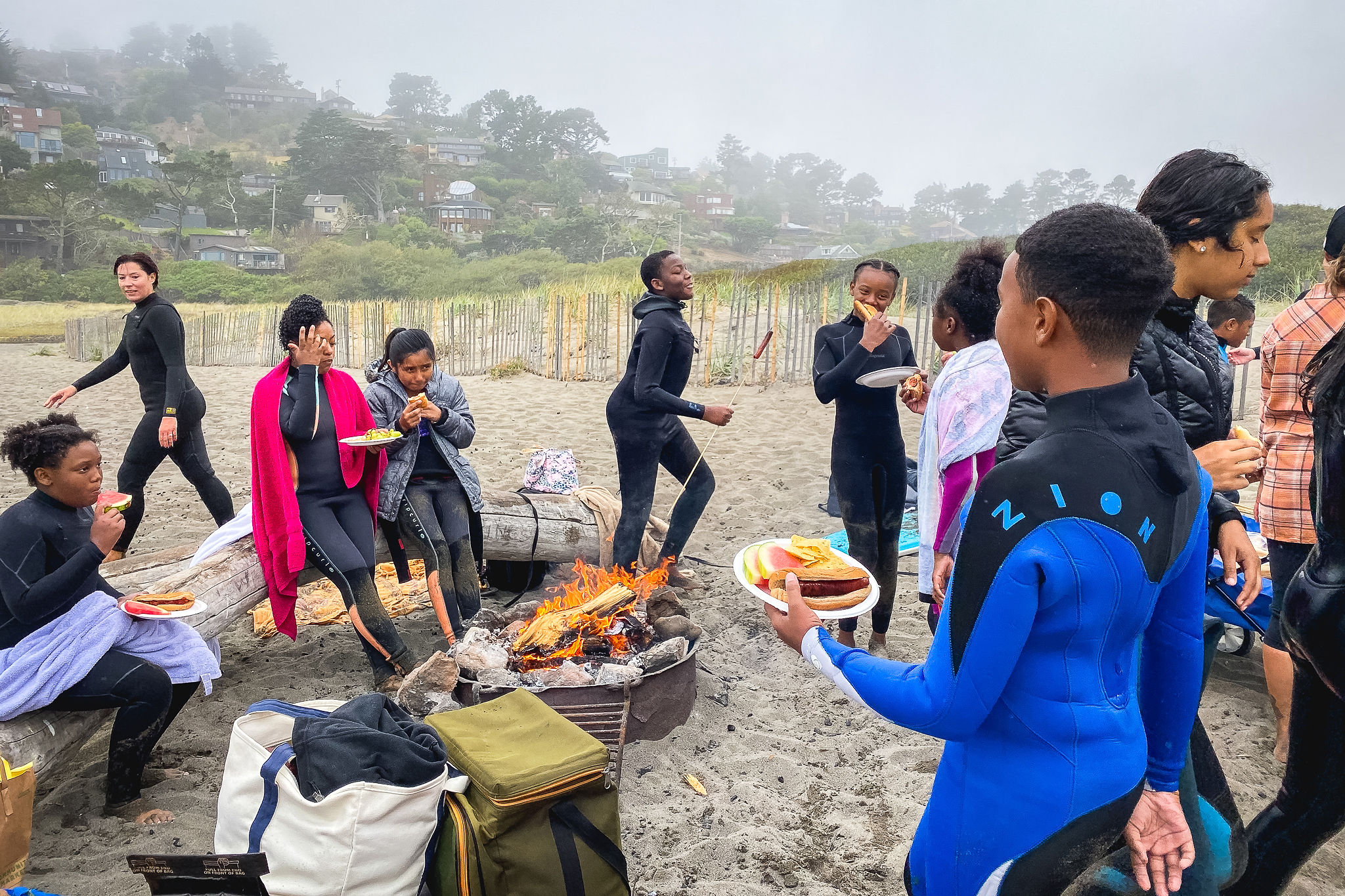
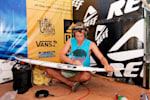

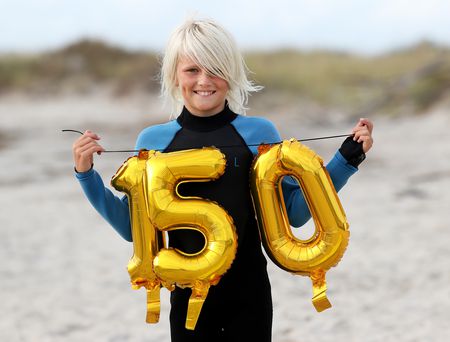

Recent Comments